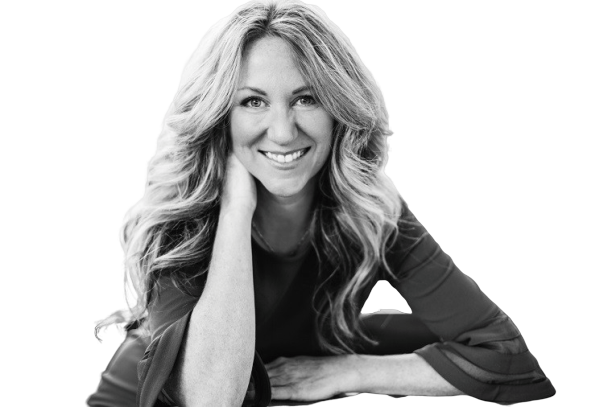Welcome back! I’m pumped to share a recent conversation that I had with Jennifer Blankl, a certified relationship and life coach, speaker, trainer, and workshop leader. I think you’re going to get a lot out of our talk about the six universal human needs.
First Things First
Before we could move on to discuss how these universal human needs affect us in the workplace, I wanted Jennifer to define “universal human needs” for you and me. She replied, “As human beings, we share the same neurological system inside of our bodies — despite our different genders, cultures, ethnicities, or ages. The theory of the six universal human needs was derived from biological science, and it concludes that these needs are universal to all humans. And what is fascinating to me, Brandon, is that when we peel back the layers of ourselves and the people that we share key relationships with, we can finally see what is truly going on.”

Jennifer went on to explain that, once we understand our needs, we can then clearly see what’s going on inside of us, why we feel the way we feel, what we’re thinking, and why we focus on whatever we’re choosing to focus on. In other words, our motivations become clear. She added, “I mean, talk about being able to shift your mindset. It’s a completely new empowering way of looking at things.”
Deepening Workplace Relationships
Of course, since I’m all about transforming the workplace, I wanted to understand how this knowledge could affect our relationships at the office. In addition to our relationships with our spouses, friends, and family, we’re interacting with our colleagues, supervisors, and strategic teams every day too. According to Jennifer, if we understand what their needs are, we’re able to adjust our interactions to meet those needs and deepen those relationships. And isn’t that what we all want?
Now, of course, I know that things have been shaken up a bit with the recent pandemic. And, as a result, many of us have been spending a lot more time at home. This current chaos got me interested in whether Jennifer thought these universal needs would play a role in helping us get through all of this unscathed.
Jennifer responded, “I think it heavily applies here and, actually, there’s been a heavier focus in my recent sessions with my clients about how they and their partners are responding differently to the situation. We’re being triggered a little bit more where we’re forced to hunker down in our homes. But we’re also dealing with a level of fear and uncertainty and insecurity that we haven’t before, at least in this forum.”
She explained that we respond based on our “needs blueprint.” For example, in the case of someone who really values the human need for certainty and comfort, “their world is going to be rocked a lot more than someone who values the human need for uncertainty, variety, stimulation, and unpredictability.” Jennifer added that we all have different vehicles that we use to meet our various needs. Since none of us are exactly alike, even if we come up with the same ranking order of our needs, we will definitely go about meeting them differently.
The Six Universal Human Needs
Without further ado, Jennifer gave me an overview of each of the six universal human needs:
Certainty: We need to feel comfortable, feel safe, and feel stable. We need to be able to predict outcomes and feel protected.
Uncertainty/Variety: We need to have variety and unpredictability as well. It challenges us emotionally and physically and helps us learn to work through fear, conflict, and crisis.
Significance: We need to feel valued, appreciated, needed, special, and important. We need to know that we have purpose.
Love and Connection: We need to feel included and connected. Human beings aren’t meant to be alone, but rather to be loved and cared for.
Growth: We need to grow emotionally, intellectually, and spiritually.
Contribution: We need to contribute in a positive way to those around us. We need to help others meet their needs.
Learning More About You
By taking Jennifer’s Human Needs Assessment, you’re also able to figure out which of the six needs you value most. According to Jennifer, “Your top two needs are what’s driving you. Whatever you’re thinking and feeling for the most part throughout your days, the actions that you choose, how you choose to spend your time, the choices you make in your personal life and your business life. They’re all being driven by these needs.” And without this information, we’re walking through life blind.
Learning More About Your Team
I was curious once more about how this concept could help us in the workplace, so I proposed a hypothetical situation to Jennifer: “Let’s say I’ve got a team of 10 people, and I’ve had them take the assessment to determine their universal needs. I’ve got their scores, what do I do with this information?”
Jennifer explained that a leader, boss, or manager could initiate “a group discussion — an open, authentic, even uncomfortable dialogue — about each of their needs and the layers surrounding them.” Knowing your own needs and the needs of those around you can completely transform the way you approach your job, your colleagues, and the company as a whole. Yes, it’s tough to be vulnerable, but this is something that is inside of us, and our needs won’t suddenly disappear just because we attempt to ignore them.
Interested in Taking the Test?
If you’re as intrigued as I was about your own needs, you can go to Jennifer’s website, jenniferblankl.com, to take the test. Click on the “Learn Your Top 2 Needs” tab and you’ll see an explanation of the needs that could serve as a recap to this podcast. Go ahead and take the test and get some insight into how your needs inform your behavior, interactions, and decisions.
You can also learn more about the six universal human needs by listening to my full interview with Jennifer Blankl right here. You’ll even get to hear her analyze my test results!
